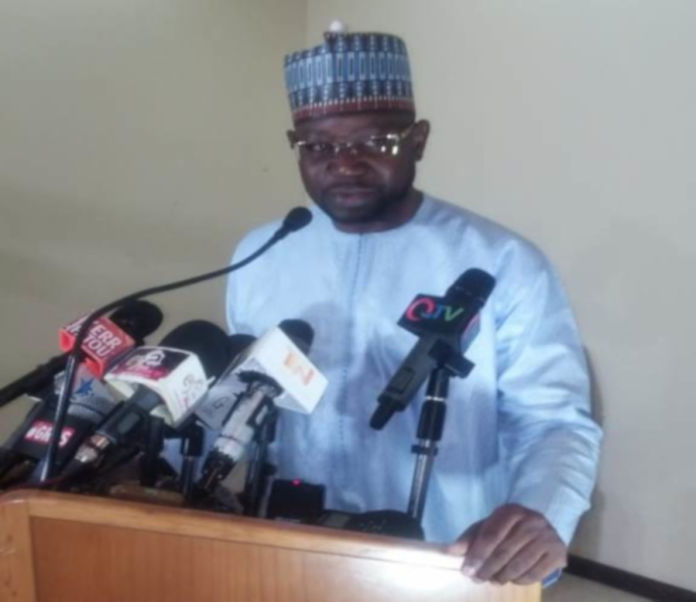By Momodou Jarju
The Leader of the Gambia Moral Congress (GMC), Mai Ahmed Fatty has resigned from his post as Special Advisor to President Adama Barrow.
He submitted a notice of termination on October 9th, 2019 to the Permanent Secretary, personnel Management Office in Banjul- the relevant government department that authored and signed the contract on behalf of the State, copied to the Secretary General, office of the President.
His resignation came on the heels of the much talked about 3-years-jotna, a grassroots movement that is campaigning for President Barrow to honor the three years campaign promise he vowed to fulfil as the Independent Candidate of Coalition 2016.
Fatty said his resignation is based on principle and it is not in connection with the 3-years-jotna movement, saying he is not party to it neither his party, GMC.
He said he resigned because he no longer found himself useful to be the advisor of President Barrow.
“I made a personal commitment when I was appointed that the day I do not feel challenged I would leave. I no longer feel challenged and also I did not feel being useful as special advisor to the president anymore. And so there is no need to continue. As simple as that,” he said in a press conference held on Friday.
Pressed by journalists to reveal what he found not useful about his contract as advisor to the president, Fatty said he swore an oath of secrecy therefore what he advised or spoke about with President Barrows remains between themselves.
He added: “I made the decision to resign on my own accord, and on my own terms, following through reflection, after having consulted my immediate family, and the leadership of my Party in The Gambia, and in the Diaspora.”
Mr. Fatty was relieved of his duties as Minister of Interior on November 10th 2017 with no reason of his sacking disclosed to the public.
When Mr. Fatty accepted his appointment as the Special Advisor to President Barrow on February 11th 2019, 80% of his supporters resented to it. Fatty admitted this fact at the press conference, saying some of them who disliked it left the party while others remained firm and allowed him to serve his country “dispassionately, sincerely with loyalty to the President and the State.”
He however admitted that his decision has reduced the strength of his Party but he assured that things would change because he is back to the party and those who left the party due to their opposition to his decision to serve the Barrow-led administration would “run back to the party.”
He remarked: “It was my party that resisted my return to the government. I carried them along with me and I promised them we will do our best to change the trajectory. If we cannot, we would have tried our best. But I did not quit, I do my best and my utmost best.”
Asked whether he would accept any offer from President Barrow again, Fatty responded indecisively.
Instead, he told the journalist in the local dialect (Wolof) that “your question is not a question. It is a statement and I don’t agree to that statement. What your question meant is that I left the government because I want to work for my party. That is the meaning of the question which is not true. I want to say you are categorically wrong. I did not leave the government to work for my party. My reason is very clear.”
Relationship with Barrow
Mr. Fatty, who is a lawyer by profession, said his relationship with the president at personal level remains strong, saying they have been friends for over 30 years.
At the political level, Fatty said he is the leader of GMC and he is responsible for his constituent- his party members and he owed them every obligation because they alone are his constituent in terms of partisan politics and all Gambians at the larger scale.
“At the office of the president, I served the president diligently. I helped him transformed the way business is done but as a special advisor I no longer find myself useful in that role anymore,” he added.
He said his role as Special Advisor to the President entails many sectors across government, and over the past 8 months, he was deeply involved in supporting the Presidency with strategic thinking and informed decision making, specifically on policy matters and governance.
“My overall responsibility included designing a strategy to achieve government-wide inter-sectoral coordination, policy harmonization and performance delivery on key national development.These were the main issues that occupied my time at State House, over the past eight months,” he said.



















